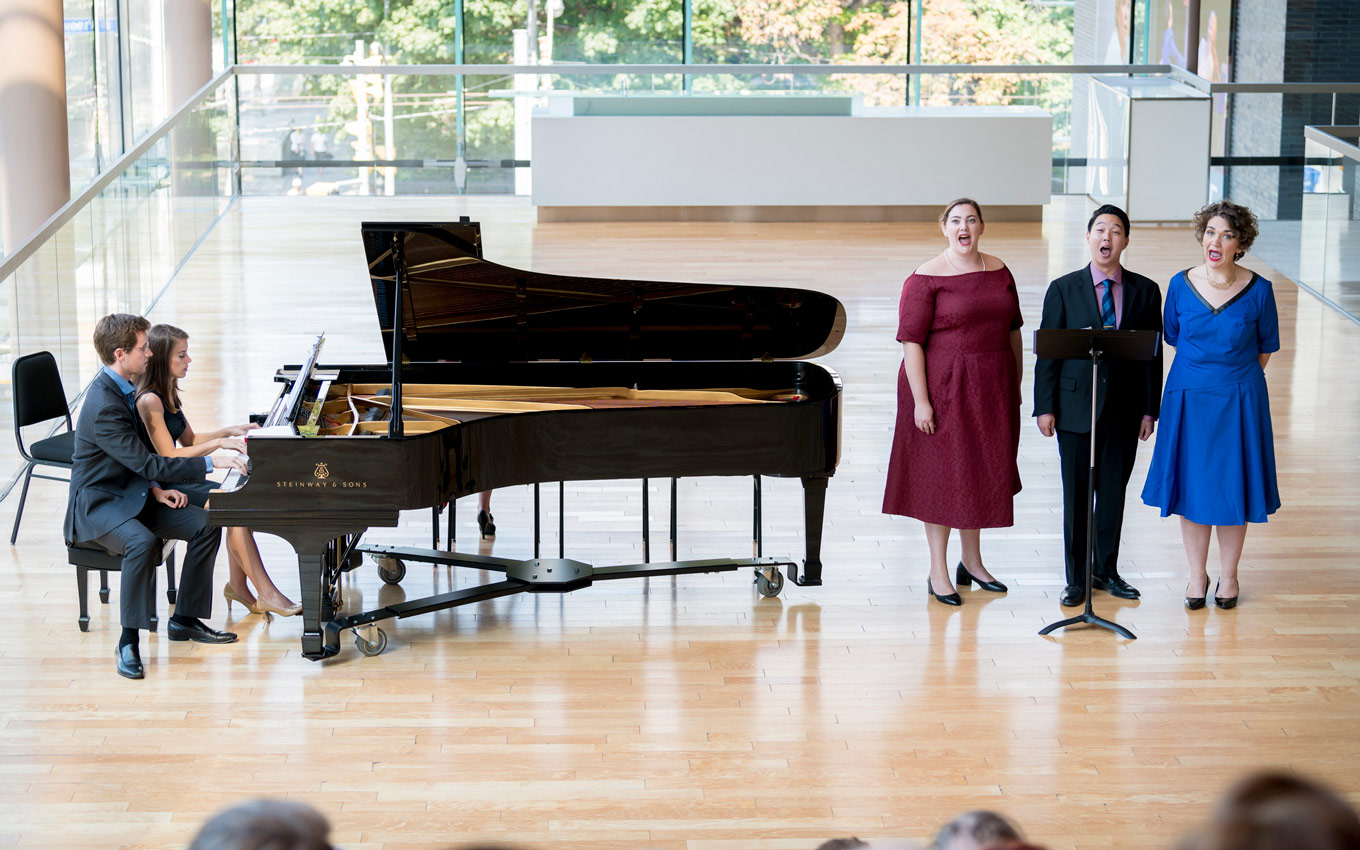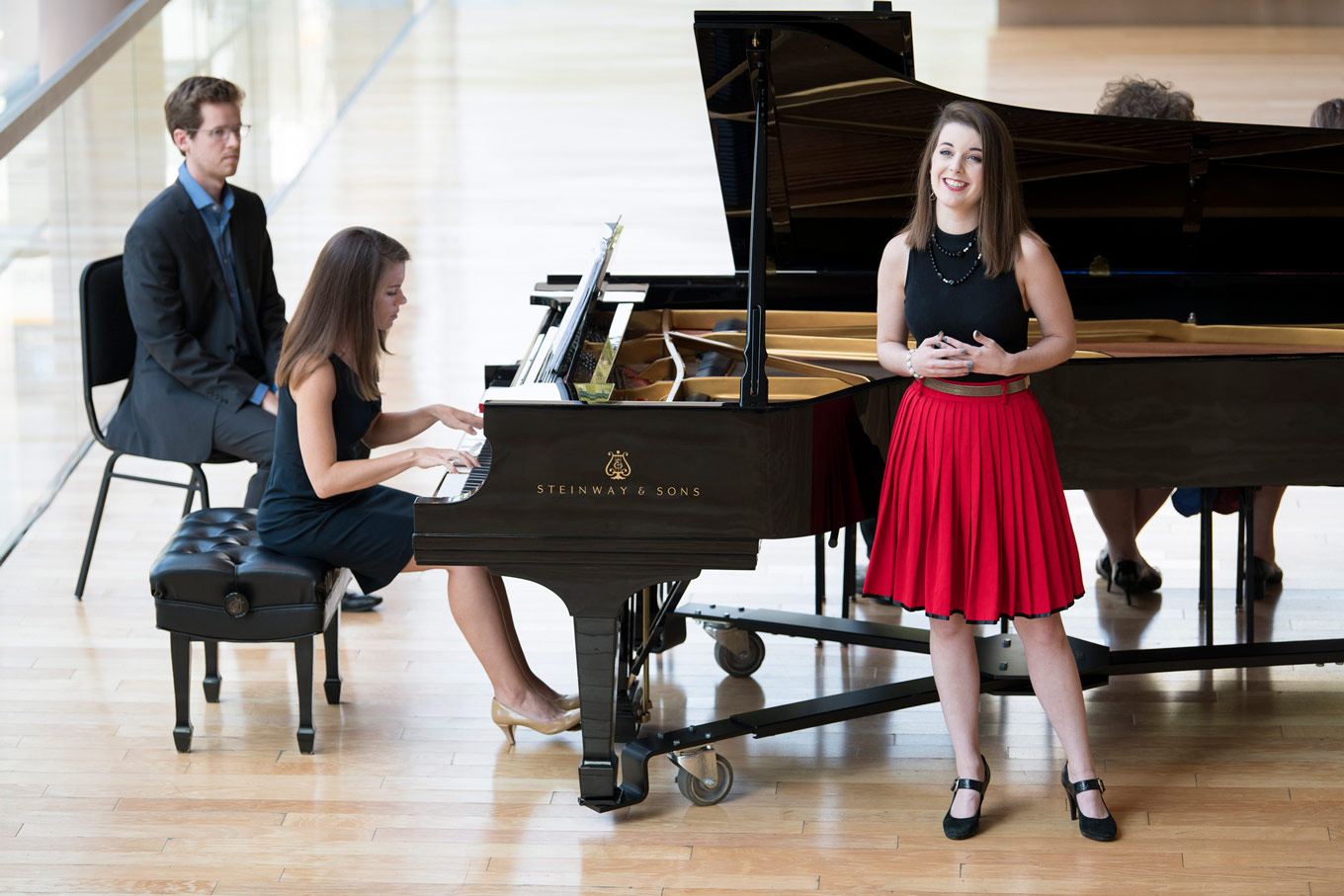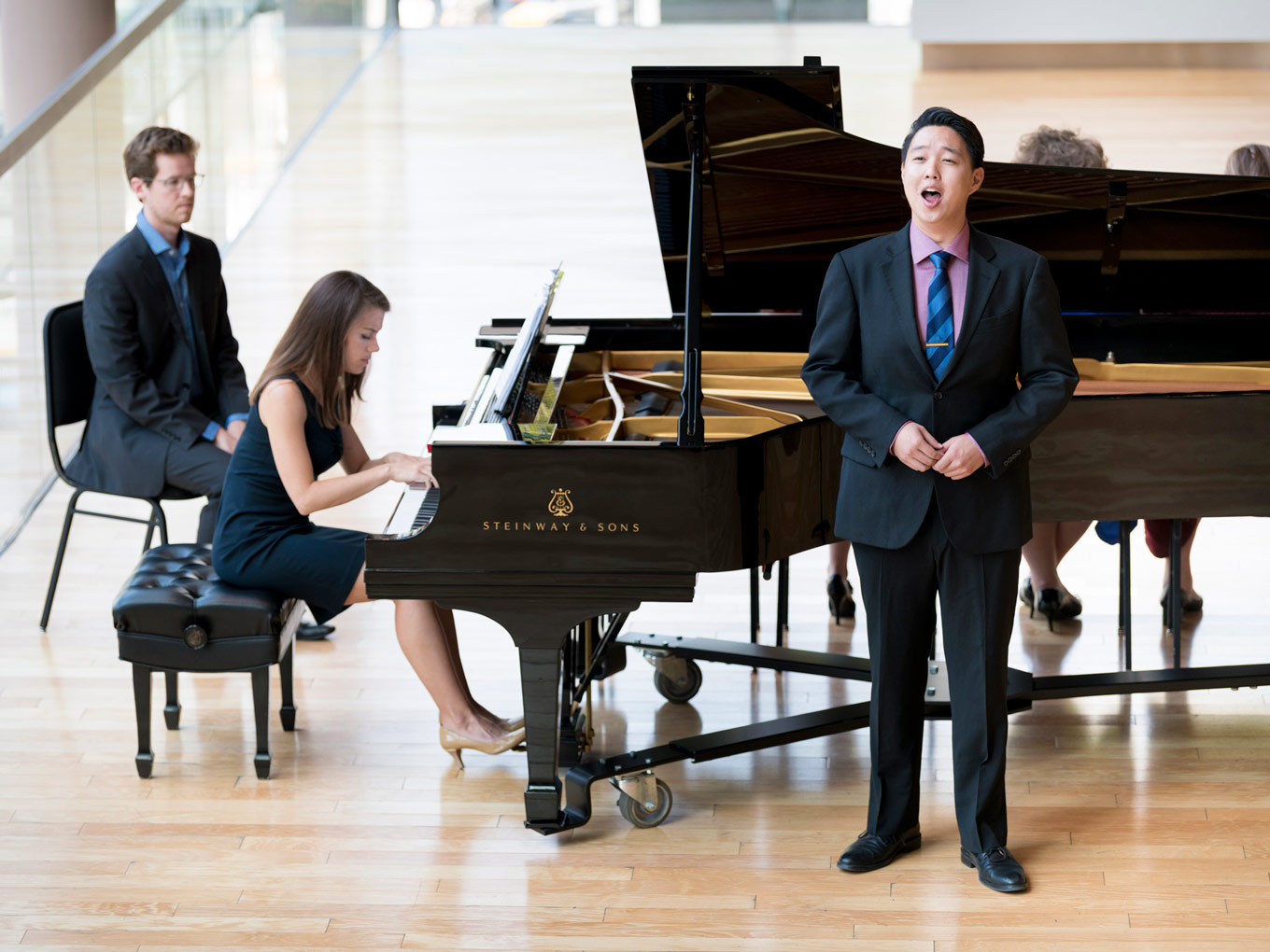
The Invictus Games come to the RBA
ReviewIt’s a common analogy for opera singers to compare their work to that of athletes. That said, it was a rare theme for a lunchtime concert in the Richard Bradshaw Amphitheatre, to have members of the COC Ensemble Studio offering songs and poetry on themes of war in celebration of the 2017 Invictus Games. The Games, established in 2014 by Prince Harry as an adaptive sports event for injured, ill, and wounded servicement and women, are ongoing in Toronto; Alexander Neef, General Director of the COC, was among the first to enthusiastically jump on board with the Canadian artistic institutions helping to celebrate and promulgate the event.

As far as war-themed recitals go, Celebrating the Invictus Games had the most variety, and even a bit of levity to it. The programme was all English song, and it included some unexpected picks by Harry Somers and Norbert Palej on top of the usual suspects in George Butterworth and Charles Ives.

When packed together into a single recital, it’s always interesting to hear how different composers write the sounds of war. Kurt Weill writes the literal sounds of drums in his “Beat! Beat! Drums!”, and Charles Ives capitalizes on the sounds of grossly happy Americana (propaganda, really) in “He is there!” Dominic Argento’s “War (June, 1940)” gives a disorienting, broken image of combat that sounds in stark contrast to the more familiar sounds of war-themed songs, the nostalgia and longing of Gerald Finzi and George Butterworth. (A common choice though it may be, Butterworth’s “Is my team ploughing” is still moving - even wryly funny - and baritone Samuel Chan’s delivery was a stunner.)

When we’re listening to mention of drums and horses, in the English of Blake and Yeats, it feels almost like an homage to fiction rather than true history in how much it is removed from contemporary war. With the newer, Canadian selections by Somers and Palej, it’s worth wondering if we truly are in a decline of war-themed art song from our generation. Maybe a better question to ask is: what about the experience of servicemen and women remains the same across the centuries? Surely violence is and always has been a horror that affects its victims and witnesses, even if the weapons change; but there has to be something timeless in missing loved ones, lasting injuries, and hopelessly questioning one’s government.
Hope is timeless, too, and it was embodied in a surprise addition to the programme in David Fawcett’s setting of the namesake poem by William Ernest Henley, Invictus. It’s worth a read, or re-read.
The Free Concert Series in the Richard Bradshaw Amphitheatre continues throughout the season. For full details, click here.


Comments